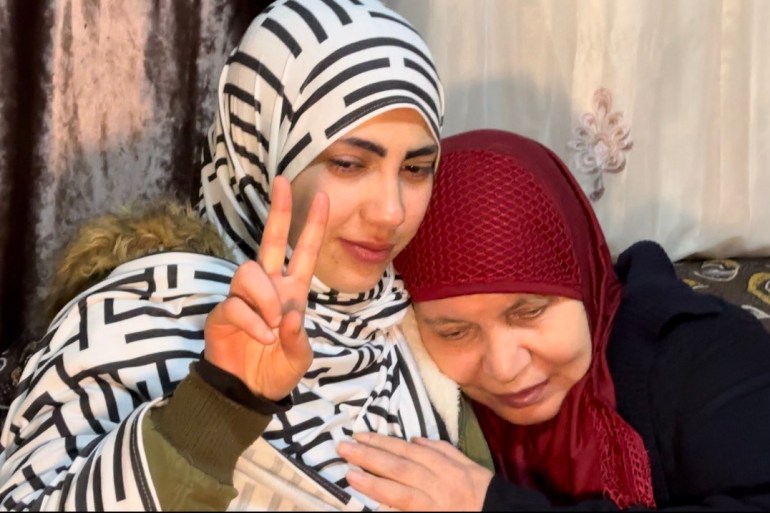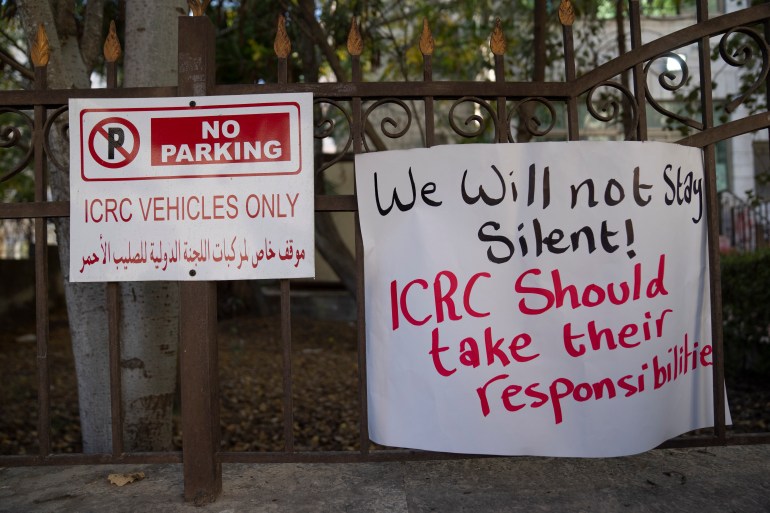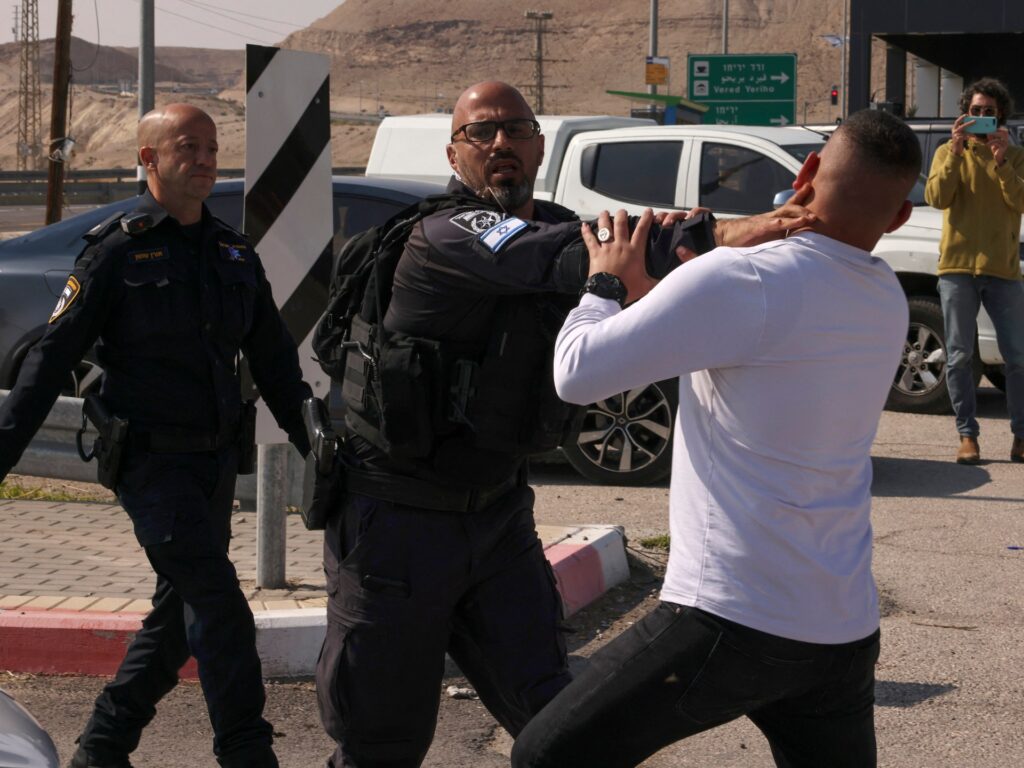Bethlehem, occupied West Bank – Palestinian organizations are documenting abuses by Israel and its military in the hopes of being held accountable one day.
This includes the Palestinian Prisoners' Society (PPS), which works to support Palestinians in Israeli prisons.
PPS Director Abdullah Al Zaghari told Al Jazeera that in recent months there had been further serious violations of human rights and international standards regarding the treatment of prisoners.
He feels that Israeli military violations are motivated by revenge against Palestinians, since the Oct. 7 attack on Israeli territory by the Qassam Brigades, an armed wing of Gaza's ruling party Hamas, and other Palestinian armed groups. He added that there is.
Since then, Israel has launched relentless attacks on the Gaza Strip, killing more than 28,000 people. It has arrested around 7,000 people, sometimes without charge, in the occupied West Bank and East Jerusalem, bringing the total number of Palestinian prisoners to nearly 10,000, adding severe overcrowding to the challenges they face.
At least 250 of those taken were children.
More than half of these detainees are in administrative detention, where Israel will hold them for months without due process or charges.
Torture begins immediately
Hanin al-Masayed, from Bethlehem's Aida refugee camp, was arrested in October 2023 and released in November as part of a prisoner exchange agreement.

She told Al Jazeera that Israeli forces raided her home on October 11, gathered her family in a room, confiscated her cellphone and told her they had a warrant. She thought the raid was a routine raid, a common occurrence in Aida.
She was taken blindfolded into an Israeli police car, where a female soldier played a Hebrew song at high volume and placed a speaker next to Al-Masayed's ear to provoke her. Her hands were tightly bound for four hours.
After spending four days in the Sharon Correctional Facility, where female guards beat the prisoners, took away their blankets and mattresses at 6 a.m., and only gave them one meal a day, she was transferred to Damon Correctional Facility. .
Al Zaghari told Al Jazeera that testimonies from released prisoners revealed assaults, humiliations and rape threats.
He added that arrests of Palestinian women and girls are increasing and they face torture, abuse and willful neglect.
brutally beaten
Jaafar Obayat, who was recently released from Megiddo prison after 17 years, told Al Jazeera that in the days following October 7, prisoners were assaulted and their clothes, supplies, food, blankets, televisions, radios, tables and chairs were stolen. He said it was confiscated.
The fact that prisoners kept such items in their cells in the first place was the result of decades of prisoners' struggles.
In a Negev prison, prisoner Tael Abu Assab was killed simply by asking a guard if there was a ceasefire, a released prisoner who requested anonymity told Al Jazeera. He added that prisoners were beaten almost daily in their cells.
When Abu Asab asked a question, the prisoner responded ominously, “I'll show you,” and the guard called the entire unit to Abu Asab's cell. They beat him all over his body, including his face, with iron bars and left him there.
The prisoners were afraid to seek treatment, but in the end, unable to see him suffer, they continued to scream until a nurse came to examine him. Two days later we were told he had died.
According to an anonymous prisoner, everyone in Abu Asab's cell was then beaten with iron bars.
The PPS has recorded thousands of injuries, including broken bones and bruises, caused by imprisoned Palestinians not receiving medical treatment. In the past four months, eight prisoners have died after being beaten to death without receiving medical treatment, such as Mohammed al-Sabal, who died in Ofer prison on February 8.
catastrophic situation, humiliation
Severe overcrowding, lack of hygiene, hunger, and cold have led to widespread disease among prisoners.
Jameel al-Drawi, from al-Obeidiya, east of Bethlehem, was released on January 11 after 18 years in detention, saying that assaults, deprivation and denial of medical care have made life unbearable for prisoners. He said he was there.
He added that prisoners with chronic illnesses were already being neglected before the war, but then prison authorities stopped giving them medication and treatment. Mobility aids and other medical equipment were also featured.
In prisons, prisoners are not allowed to shower and have their other clothing confiscated, so they often have to wash and wear their clothes wet, which spreads disease. Cells are overcrowded and prisoners sleep on the floor without blankets.
PPS also noted that Israeli prison authorities do not provide prisoners with sufficient quantities or properly prepared meals.
Israeli authorities have also begun forcing Palestinians to strip and assign numbers instead of names during transport in an effort to humiliate them, and Israeli soldiers have even circulated videos of themselves assaulting prisoners. There is.

PPS also recorded attacks in which special forces invaded prisoners' cells and assaulted them, stomping on their heads. In one instance, a prisoner was forced to the ground and a female recruit was told to stomp on her head.
Former prisoner Kamal Abu Arab said: “This occupation has no respect for our humanity and the prisoners feel forgotten. No one mentions them. No visits from lawyers, no Red Cross.'' There are no visits.
“News is prohibited, prayers and calls to prayer are prohibited, medical treatment is prohibited, requests are prohibited. According to the prison administration, we have no rights as human beings.
“Does anyone in this world remember us?”
As of October 7, Red Cross visits to prisons in Israel have ceased and its responsibilities have been suspended.
The organization visited each prison at least once a month and was officially notified of all arrests by Israeli prisons. This allowed the Red Cross to communicate information to detainees' families, but this is no longer possible.
Al Zaghari said the Red Cross was not applying enough pressure to ensure Israel's compliance with international standards.
Ziyad Abu Rabban, official spokesperson for the International Committee of the Red Cross, confirmed that there had been no visits to the prison since October 7 and that resuming visits was a top priority.
Many Palestinians now wonder why Israel is avoiding responsibility and question the validity of treaties and international agreements.

